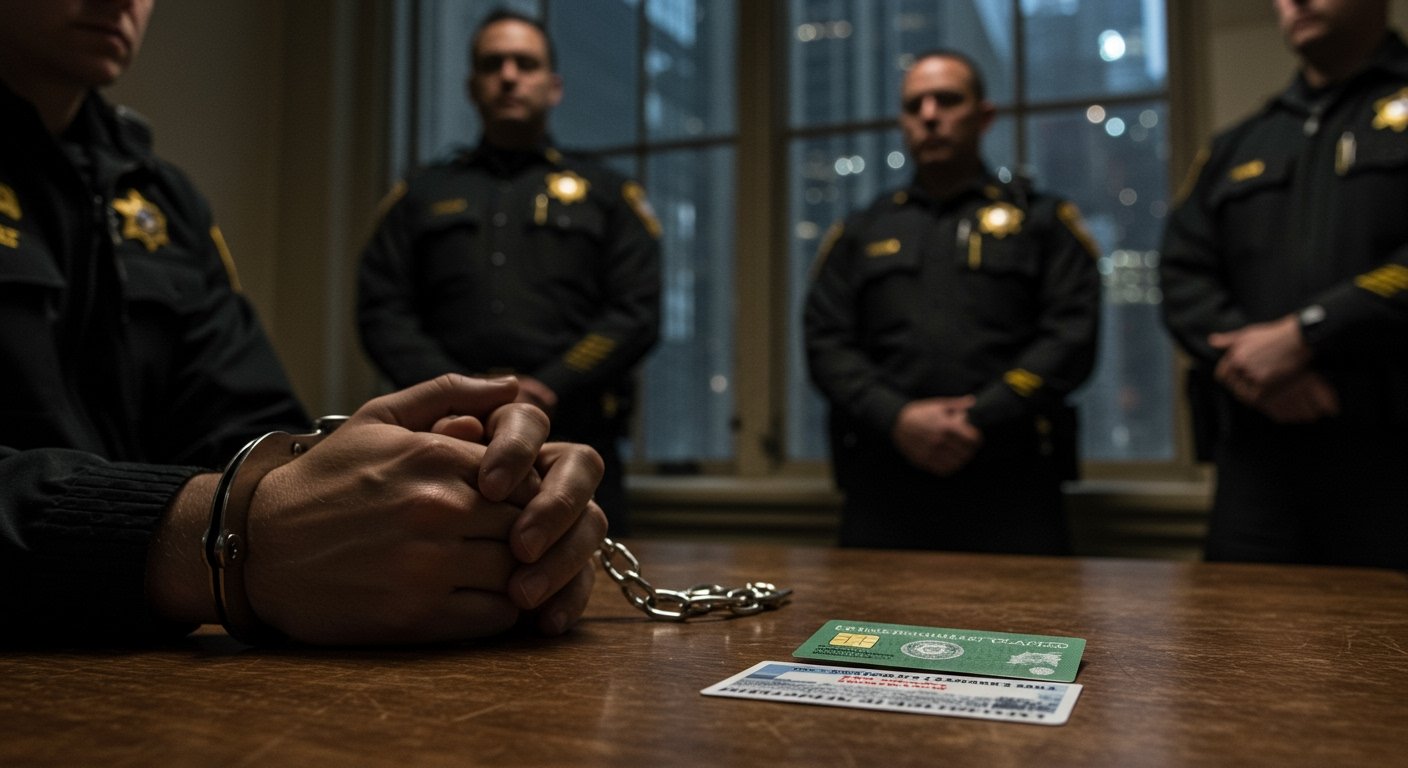Washington, DC – In a significant escalation of efforts against transnational criminal organizations, the United States has announced the first federal charges targeting an individual for providing material support to a criminal group designated a “foreign terrorist organisation” by President Donald Trump.
The Department of Justice unveiled an indictment accusing a Mexican national of furnishing a powerful drug cartel with military-grade weapons and facilitating its illicit smuggling operations. This move marks a notable shift in how the US government is prosecuting individuals linked to cartels, applying legal frameworks typically reserved for groups like al-Qaeda or ISIS.
A Landmark Prosecution
Immigration and Customs Enforcement (ICE) identified the suspect as Maria Del Rosario Navarro-Sanchez, a 39-year-old woman from Mexico. The unsealed federal indictment lays out a series of serious allegations against Navarro-Sanchez, asserting that she provided critical support to the Cartel de Jalisco Nueva Generacion (CJNG).
The indictment specifically accuses Navarro-Sanchez of furnishing the CJNG, one of Mexico’s most violent and powerful drug trafficking organizations, with grenades. Furthermore, she is alleged to have played a role in helping the cartel smuggle a variety of contraband across international borders, including migrants, firearms, money, and drugs. These activities are central to the cartel’s operations, funding its criminal enterprises and expanding its reach.
Understanding the Designation
The foundation for these unprecedented charges lies in the US government’s formal designation of the CJNG as a foreign terrorist organization. This action was taken by President Donald Trump, a move that opened up new legal avenues for prosecuting individuals who provide support to the group, even if their actions are not directly linked to traditional acts of terrorism but rather to the cartel’s core criminal activities.
Under US law, providing material support or resources to a designated foreign terrorist organization is a federal crime. Material support can encompass a wide range of assistance, including providing weapons, transportation, personnel, or even expert advice or assistance. The charges against Navarro-Sanchez appear to fall squarely within this definition, citing the provision of grenades and assistance with smuggling operations as key examples of her alleged support.
The Cartel: CJNG
The Cartel de Jalisco Nueva Generacion, or CJNG, is a relatively newer but exceptionally brutal and rapidly expanding Mexican cartel. Known for its aggressive tactics, sophisticated weaponry, and willingness to confront security forces directly, CJNG has become a primary target for both US and Mexican authorities. Its criminal network extends far beyond Mexico, with significant operations and influence within the United States, particularly in the trafficking of vast quantities of fentanyl, methamphetamine, cocaine, and heroin.
The cartel’s operations, as highlighted in the indictment against Navarro-Sanchez, rely heavily on controlling smuggling routes and maintaining a constant flow of weapons, cash, and personnel. Disrupting this logistical network is a key objective for law enforcement, and leveraging the terrorism designation provides prosecutors with potentially more potent legal tools and harsher penalties.
Official Response and Implications
Following the announcement, US Attorney General Pam Bondi underscored the gravity of the situation and the significance of the charges. In a widely reported statement, Attorney General Bondi asserted, “Cartels like CJNG are terrorist groups that wreak havoc in American communities and are responsible for countless lives lost in the United States, Mexico and elsewhere.”
She added that the announcement of these charges “demonstrates the Justice Department’s commitment to securing borders and protecting Americans through effective prosecution.” This statement reinforces the administration’s posture that combating powerful drug cartels requires classifying and prosecuting them using the same legal framework applied to international terrorist organizations.
Broader Context and Future Impact
The decision to prosecute an alleged cartel affiliate under terrorism statutes represents a notable shift in US anti-narcotics and anti-crime strategy. For years, cartels have been treated primarily as organized crime syndicates. However, their increasing violence, territorial control, and direct challenges to state authority have led some policymakers and law enforcement officials to argue they function more like terrorist groups.
Applying terrorism charges could lead to longer sentences and different investigative tools being utilized against cartel members and affiliates. It also sends a strong message to individuals who may be contemplating providing support to these groups, signalling that such actions could result in facing charges usually reserved for serious national security threats.
While this marks the first federal charge of this specific nature against a foreign national supporting a designated cartel, it is expected to be part of a broader strategy. The US government has previously imposed sanctions and other measures targeting cartel finances and leadership under various authorities, but the use of material support for terrorism charges raises the legal stakes significantly.
The case against Maria Del Rosario Navarro-Sanchez will be closely watched as it progresses through the federal court system. Its outcome could set important precedents for future prosecutions against individuals accused of supporting organizations like CJNG and others that may eventually be added to the list of designated foreign terrorist organizations.












